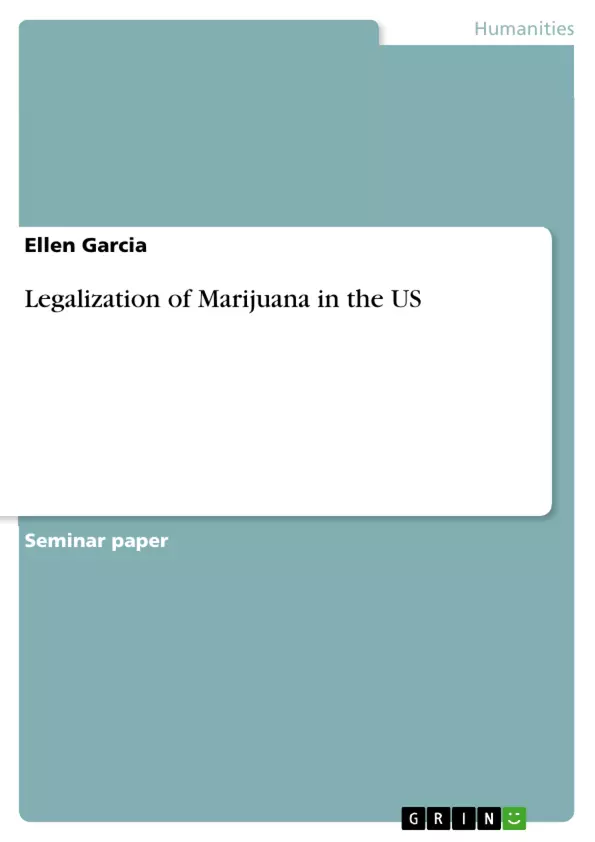The question of whether to legalize marijuana or not in America has continued to draw mixed reactions from various people, while some agree, other disagree. Though Congress passed a law in 1937 to outlaw smoking and possession of marijuana in America, millions of America still smokes marijuana. There are a number of reasons that marijuana smokers’ site as to why they continue to smoke marijuana. Yet, the government when outlawing marijuana also gave its own reasons, but it seems to have failed. As observed by Gettman despite of a lot of efforts to eradicate domestic marijuana, “production of marijuana has been on a steady increase over time. Since outlawing marijuana has not achieved its desired objectives, time has come to change this law. This research paper thus seeks to review this issue by proposing that marijuana should be legalized.
Inhaltsverzeichnis (Table of Contents)
- Introduction
- Economic benefits
- Reduces criminal activities
- Legalizing marijuana will improve civil rights
- Conclusion
Zielsetzung und Themenschwerpunkte (Objectives and Key Themes)
This research paper examines the ongoing debate regarding the legalization of marijuana in America. The paper argues that marijuana should be legalized due to its potential economic benefits, its ability to reduce criminal activity, and its contribution to improving civil rights.
- Economic Benefits
- Reduction in Criminal Activity
- Civil Rights
- Social Justice
- Public Health Considerations
Zusammenfassung der Kapitel (Chapter Summaries)
- Introduction: This section introduces the ongoing debate about legalizing marijuana in the United States, highlighting the conflicting viewpoints and the history of marijuana prohibition. The author argues that the current prohibition has not been effective and suggests legalization as a solution.
- Economic Benefits: This chapter explores the potential economic benefits of legalizing marijuana. The author argues that legalization would increase government revenue through taxation, create new jobs, and reduce the costs associated with law enforcement and incarceration.
- Reduces criminal activities: This chapter focuses on the link between marijuana prohibition and criminal activity. The author argues that legalization would reduce the power of criminal organizations involved in the marijuana trade, decrease gang violence, and reduce the number of arrests and incarcerations related to marijuana use.
- Legalizing marijuana will improve civil rights: This chapter examines the disproportionate impact of marijuana enforcement on minority communities. The author highlights the racial bias in arrests and sentencing for marijuana offenses and argues that legalization would address this injustice and promote racial equality.
Schlüsselwörter (Keywords)
The primary keywords and themes explored in this text include marijuana legalization, economic benefits, criminal activity, civil rights, social justice, public health, and racial disparities.
Frequently Asked Questions
What are the main arguments for legalizing marijuana in the US?
The research paper argues for legalization based on potential economic benefits, a reduction in criminal activities, and the improvement of civil rights.
How could marijuana legalization benefit the economy?
Legalization could increase government revenue through taxation, create new jobs, and significantly reduce law enforcement and incarceration costs.
What is the link between marijuana prohibition and civil rights?
Prohibition has a disproportionate impact on minority communities, showing racial bias in arrests and sentencing. Legalization is seen as a way to promote social justice and racial equality.
Can legalizing marijuana reduce crime?
The paper suggests that legalization would weaken criminal organizations, decrease gang violence, and lower the number of arrests related to marijuana trade.
When was marijuana first outlawed in the United States?
Congress passed a law in 1937 to outlaw the smoking and possession of marijuana in America.
- Arbeit zitieren
- Ellen Garcia (Autor:in), 2013, Legalization of Marijuana in the US, München, GRIN Verlag, https://www.grin.com/document/271549



